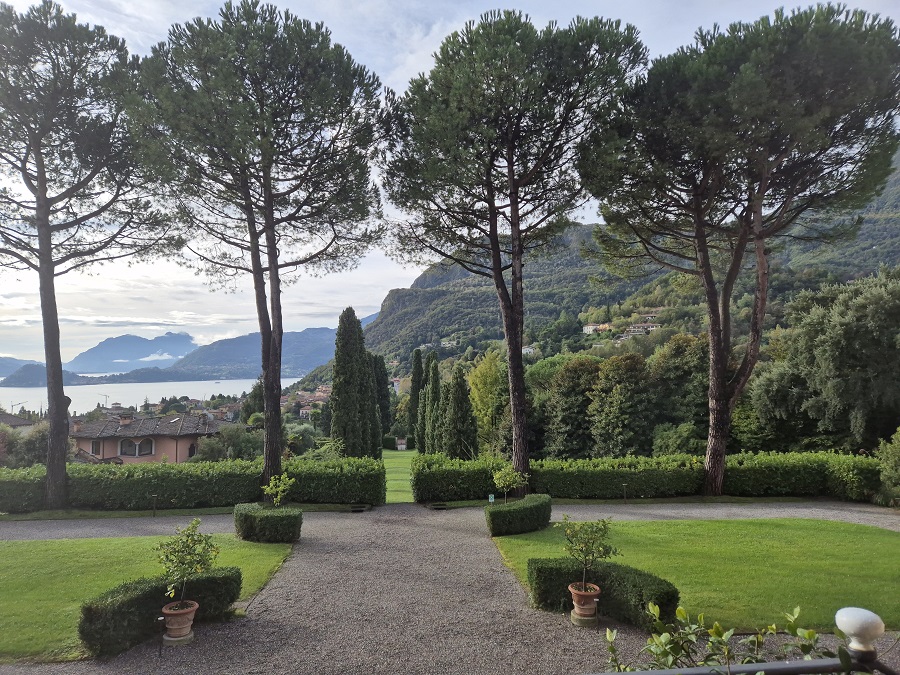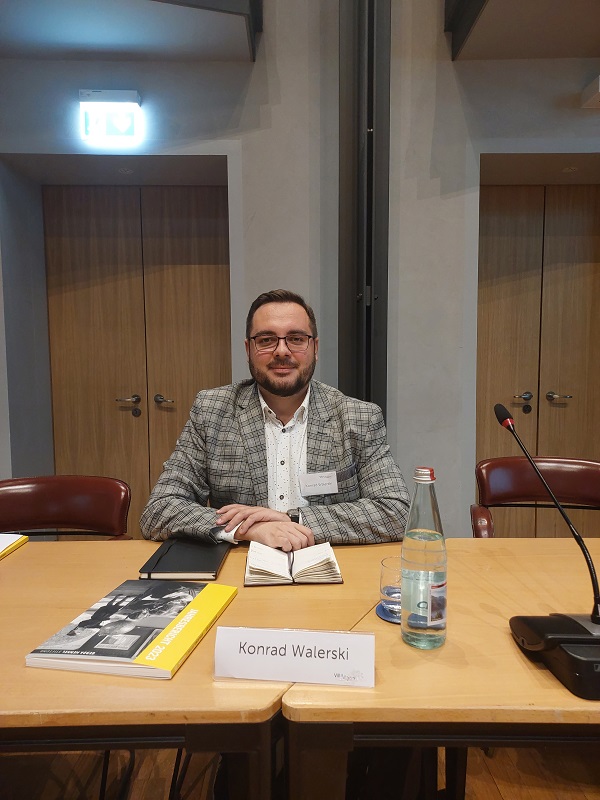Four-Nation Colloquium "European Public Sphere and Democratic Communication"
From October 7 to 10, 2024, Konrad Walerski, PhD candidate and academic assistant at the Viadrina Center of Polish and Ukrainian Studies, as well as coordinator of the Mod-Block-DDR research network, participated as a guest in the interdisciplinary Four-Nation Colloquium "European Public Sphere and Democratic Communication" at the German-Italian Center Villa Vigoni in Menaggio, on Lake Como in Northern Italy. The colloquium is part of the workshop series "Rethinking the Future of Europe," aimed at early-career researchers from Germany, France, Italy, and Poland. The event was organized by the Genshagen Foundation in collaboration with the Gerda Henkel Foundation, the online portal VHS Wissen Live, and Villa Vigoni.
– The sense of belonging to Europe becomes especially palpable in places like Villa Vigoni. The encounter with the Alpine and Mediterranean landscapes of Northern Italy, as well as the direct connection with the historical heritage of antiquity, Christianity, the Renaissance, the Enlightenment, and the 19th century, inspires reflection on what unites Europe and its inhabitants into a community – a public sphere – in both a geographical and temporal sense. In the discussions on "European Public Sphere and Democratic Communication," I sought to demonstrate that Europe, among other things, is a community of memory and destiny.

"Even after more than 70 years of institutional integration, it has not yet been possible to create a shared European public sphere. Is this due to the lack of a common language? Is it a deficiency in cross-border journalism, in media that go beyond national topics and specifically address pan-European issues? Or do we need a communal public sphere beyond the institutions of the Union?" – asked the participants of the colloquium. "These barriers, I believe, can be overcome, but the real issue lies elsewhere – namely, in the distinction between the 'reality of Europe' and the 'idea of Europe,' between the 'true Europe' and the 'European Union,' between 'shared history' and the 'shared project.' The key challenge is to understand these differences."
The lack of a shared European public sphere is not the result of a deficiency in European identity, but rather a conscious turning away from it. In the past, there were shared values and ideas, such as Christian democracy, the common "culture of the West," or the concept of "two wings of the lungs of Europe," which were especially present in the narratives of countries like Poland after the fall of communism. Today, these common values are losing significance in favor of political and ideological demands, leading to an increasing fragmentation of discourses and a focus on the particular issues of individual European states or interest groups, rather than building a unified public sphere. Andreas Reckwitz highlighted this shift in his book The Society of Singularities: The Structural Transformation of Modernity (2017).

"The universal characteristics of European culture, which have contributed to the 'modernization' and 'Europeanization' of many parts of the world over the past centuries and possess the greatest creative potential, seem today to be most neglected within Europe itself, and particularly within the European Union. Culture, and with it social and economic life, is ultimately a kind of 'scenario' that can be fully, partially, or newly performed and written," emphasized Konrad Walerski during his speech at the colloquium.